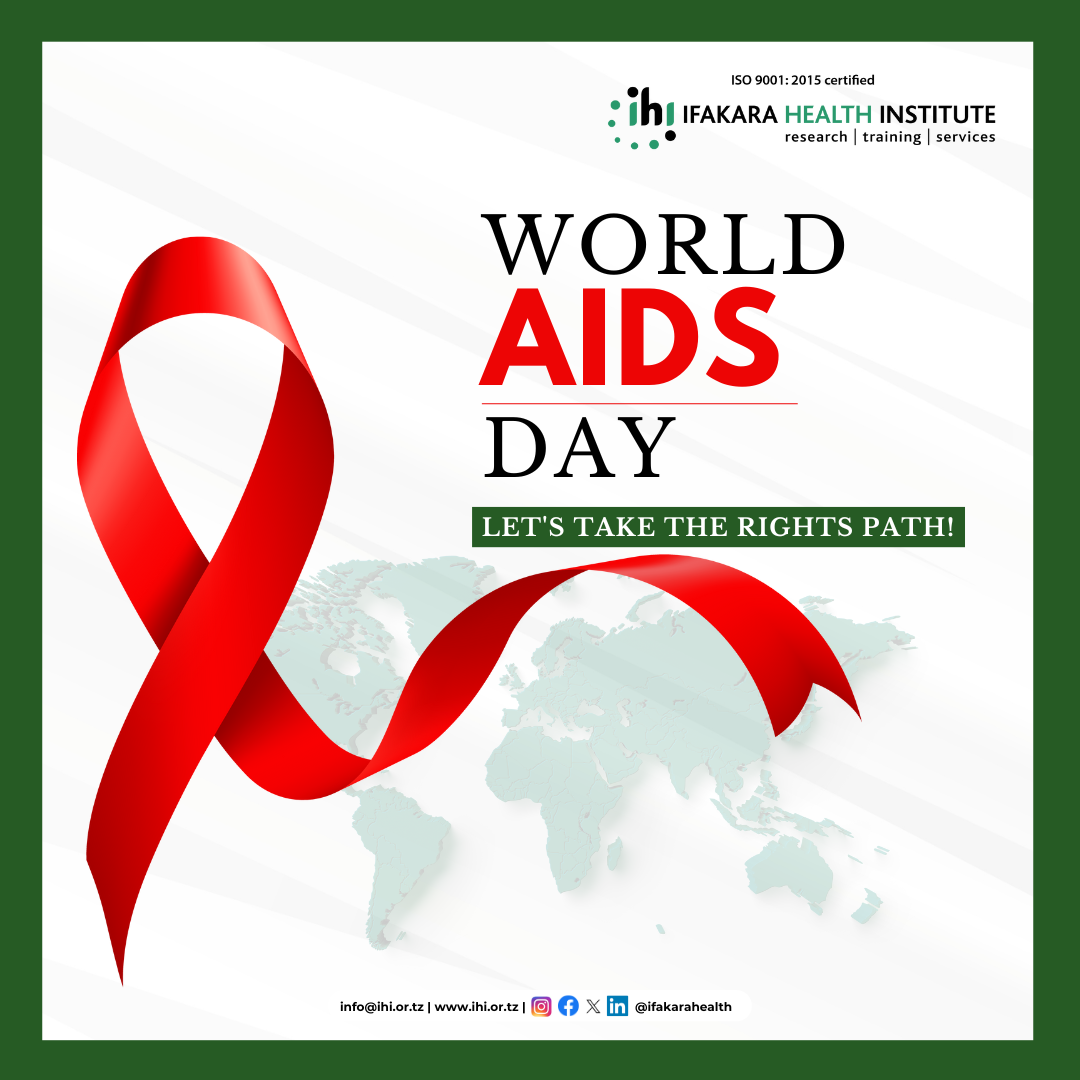
WORLD AIDS DAY: Let's take the Rights Path!

On World AIDS Day 2024, we at the Ifakara Health Institute join the global community in championing this year’s theme: “Take the Rights Path: My Health, My Right!” This theme highlights the critical need for equitable, stigma-free healthcare access and calls for a rights-based approach to addressing HIV/AIDS.
Tackling Inequities in HIV Care
The fight against HIV/AIDS is not just about science; it’s about justice. Inequities in healthcare—driven by stigma, discrimination, and structural barriers—continue to hinder progress. A rights-based approach ensures that every individual, especially marginalized and at-risk populations, has access to the care and support they deserve.
This year’s World AIDS Day theme,, calls for a rights-based approach to addressing HIV/AIDS, emphasizing equitable, stigma-free, and accessible healthcare for all. It underscores the importance of confronting inequalities that hinder progress toward ending AIDS by 2030 and calls for addressing barriers such as stigma, discrimination, and structural inequities in healthcare systems. Key aspects of the theme include:
Ifakara’s Role in Advancing Rights-Based Healthcare
Ifakara has been a leader in advancing rights-based healthcare through initiatives like the Chronic Diseases Clinic Ifakara (CDCI) and the One Stop Clinic, which provide integrated, patient-centered care to underserved populations. Programs such as the One Stop Teen Club, supported by USAID, create safe spaces for young people to gain knowledge, challenge stigma, and advocate for their rights and health.
By leveraging innovations like mobile health platforms and biomedical tools such as PrEP and PEP, Ifakara ensures no one is left behind.
A Call to Action
This World AIDS Day, we call on all stakeholders—policymakers, healthcare providers, funders, and communities—to prioritize human rights in the HIV response. Ending the epidemic by 2030 requires confronting the barriers that deny individuals their right to health.
Together, we can build a future where everyone, regardless of their circumstances, has the opportunity to live a healthy, fulfilling life. Let's take the Rights Path!
What is HIV and AIDS
HIV (Human Immunodeficiency Virus) is a virus that attacks the immune system. If left untreated, HIV can lead to the disease AIDS (Acquired Immunodeficiency Syndrome).
HIV is transmitted through contact with certain body fluids, such as blood, semen, vaginal fluids, rectal fluids, and breast milk from a person who has HIV. The most common ways HIV is transmitted include unprotected sexual intercourse, sharing needles or syringes with someone who has HIV, and from an infected mother to her child during childbirth or breastfeeding.
